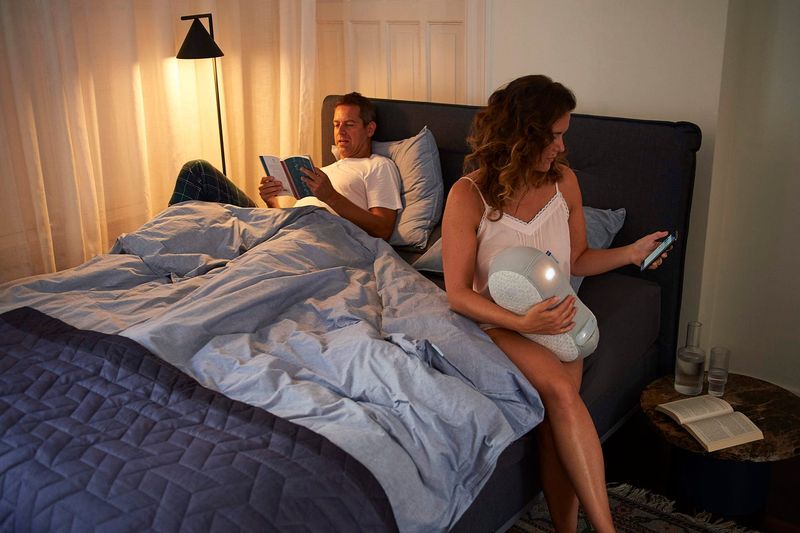Is the Spark Fading? 16 Clues Your Partner Feels Too Settled in the Relationship

Relationships naturally evolve over time, but there’s a difference between comfortable familiarity and taking each other for granted. When the excitement fades and effort disappears, it might signal your partner has become too comfortable. Recognizing these warning signs early can help you address issues before the emotional distance grows too wide.
1. Romantic Gestures Have Disappeared

Remember when your partner would leave sweet notes in your lunch bag or surprise you with your favorite coffee? Those thoughtful gestures that once made your heart flutter have gradually vanished. The small acts of love that showed they were thinking about you throughout the day seem like distant memories now.
The absence of these little surprises isn’t just about missing gifts. It reflects a shift in mindset where your partner no longer feels the need to actively court you or make you feel special. They’ve stopped putting in that extra effort that makes a relationship feel magical rather than mundane.
This doesn’t mean they don’t care, but it suggests they’ve become too comfortable with the status quo and might need a gentle reminder that relationships require ongoing nurturing.
2. Appearance Effort Has Dropped

Those early dating days when they’d spend extra time getting ready before seeing you feel like ancient history. Now they’re constantly in the same worn-out sweatpants, haven’t had a haircut in months, and barely bother with basic grooming when you’re together. This isn’t about expecting perfection—it’s about the message their lack of effort sends.
Everyone deserves comfort days, but when your partner stops caring entirely about how they present themselves around you, it often signals they no longer feel the need to impress you. They assume you’ll accept them regardless, which is partly true in a loving relationship, but also potentially concerning.
The issue isn’t the casual clothes—it’s the complete abandonment of any effort to look good for you specifically.
3. Conversations Feel Routine

Your talks have transformed from fascinating explorations of each other’s minds to purely functional exchanges. “Did you pay the electric bill?” “Can you pick up milk on your way home?” “What time is the appointment tomorrow?” The logistics of life have completely replaced the connection that deeper conversations create.
You can’t remember the last time they asked about your dreams or shared their own thoughts on something meaningful. The passionate debates and philosophical discussions that once kept you talking until sunrise have disappeared. Even your jokes and stories feel recycled.
When conversation becomes merely transactional, emotional intimacy suffers. Partners who are still engaged ask questions that go beyond daily necessities—they remain curious about each other’s inner worlds.
4. Less Physical Affection

Physical touch serves as a powerful connector in relationships, but yours has noticeably diminished. The lingering hugs that used to make you feel safe have become quick, mechanical embraces. Kisses that once conveyed passion are now perfunctory pecks, if they happen at all.
You might find yourself initiating most physical contact, while your partner rarely reaches for your hand or puts an arm around you without prompting. When they do touch you, it feels more like obligation than desire. Even sitting on the couch, there’s now a noticeable gap between you.
This physical distance often mirrors emotional distance. Touch is a primal way we bond with loved ones, and when it decreases significantly, it frequently signals that your partner has stopped actively nurturing your connection.
5. Date Nights Are Nonexistent

The calendar used to feature regular date nights—those special evenings dedicated to just enjoying each other’s company. Now those intentional outings have vanished from your schedule entirely. Your partner seems perfectly content with the routine of takeout and television, night after night.
When you suggest trying the new restaurant downtown or catching a show, they respond with little enthusiasm. “Why go out when we’re comfortable here?” becomes their standard response. The problem isn’t staying in occasionally—it’s the complete lack of interest in creating new experiences together.
Date nights aren’t frivolous extras in a relationship; they’re maintenance. They provide opportunities to connect outside daily stresses and remind each other why you chose one another in the first place.
6. They Assume You’ll Always Be There

There’s a certain confidence in your partner’s demeanor that goes beyond security into the territory of taking you for granted. They make decisions without consulting you, assuming your support regardless. When you do something kind or helpful, acknowledgment rarely follows.
You’ve noticed they expect your forgiveness after arguments without putting in the work to resolve issues or change behaviors. The phrase “you’re not going anywhere” might even be spoken aloud during disagreements. This assumption of permanence can feel both comforting and concerning.
Healthy relationships balance security with appreciation. Your partner should feel confident in your love without becoming complacent about it. When they stop actively showing gratitude for your presence in their life, it often signals they’ve become too comfortable.
7. No More Compliments

Your new haircut went completely unnoticed. The promotion you worked so hard for received only a brief “that’s nice” response. The special meal you prepared was met with a distracted “thanks” as they scrolled through their phone. The stream of sincere compliments that once made you feel seen and valued has dried up entirely.
Everyone appreciates recognition, especially from the person whose opinion matters most. When your partner stops noticing your efforts or attributes, it creates an emotional void. You start to wonder if they still see what makes you special or if they’ve simply stopped looking.
This silence doesn’t necessarily mean they don’t care, but it does suggest they’ve stopped actively appreciating you. Noticing the good in our partners requires intentional attention—something that fades when someone becomes too settled.
8. They’re Glued to Their Phone or TV

Quality time together has been hijacked by screens. Your partner’s attention constantly drifts to their phone, even during conversations or meals. When you’re sitting together, they’re mentally elsewhere—scrolling social media, responding to non-urgent texts, or diving into endless video content.
TV time used to mean cuddling on the couch and enjoying shows together. Now it feels like you’re just occupying the same space while they zone out completely. You might even notice they seem more animated and engaged with their digital world than with you.
This screen fixation creates a new kind of loneliness—being physically present but emotionally disconnected. While technology isn’t inherently problematic, when your partner consistently chooses digital distraction over connection with you, it signals they’ve stopped prioritizing your relationship.
9. They Stop Trying to Impress Your Friends or Family

Remember how they used to bring your mom’s favorite dessert to family dinners or ask thoughtful questions about your best friend’s new job? That effort to connect with your important people has noticeably faded. Now they either skip these gatherings entirely or attend with obvious reluctance.
When they do show up, their behavior has changed. Conversations remain surface-level, and they might spend much of the time checking their phone or finding reasons to step away. They no longer remember details about your loved ones’ lives or follow up on previous conversations.
This withdrawal isn’t just about your circle—it reflects their investment in your shared future. Someone committed to building a life with you typically maintains connections with the people you care about, knowing these relationships form your support system.
10. Conversations About the Future Fade

Those excited late-night talks about your dream house, potential travel destinations, or where you might be in five years have disappeared completely. Your partner changes the subject when future plans come up or responds with vague, noncommittal answers. The shared vision that once energized your relationship seems to have evaporated.
You’ve noticed they speak less in terms of “we” and more in terms of “I” when discussing what lies ahead. Major life decisions that would affect both of you are sometimes made unilaterally. Even practical discussions about next year’s goals or upcoming holidays get postponed indefinitely.
This reluctance to engage with the future often signals uncertainty about the relationship’s longevity. A partner who sees you in their future typically enjoys building that vision with you, even if plans change over time.
11. They Don’t Prioritize Alone Time Together

Finding time for just the two of you has become increasingly difficult. Your partner’s schedule somehow always fills up with work commitments, friend gatherings, or solo hobbies that leave little room for quality couple time. When you express wanting more one-on-one connection, they might seem puzzled by your need.
The time you do spend together often includes others or happens by default rather than design. Weekend mornings that were once reserved for lazy breakfasts together now find them rushing out for other activities. Even vacations might include friends or family rather than providing intimate moments.
While healthy relationships include separate interests, consistently placing other activities above quality time together suggests a shift in priorities. Partners who value their relationship create protected space for nurturing their connection, regardless of how busy life becomes.
12. Little to No Flirting

The playful energy that once sparked between you has fizzled out completely. Those suggestive texts throughout the day, the whispered comments that made you blush, and the lingering glances across a crowded room are all memories now. Your partner seems to have forgotten the art of flirtation entirely.
Physical interactions have become purely functional rather than flirtatious or suggestive. The teasing banter that used to lead to laughter and intimacy has been replaced with straightforward, often serious communication. Even compliments, when they do come, lack that special spark that made you feel desired.
Flirting isn’t just for new couples—it’s how partners continue to create excitement and show attraction. When your partner stops these playful overtures, it often indicates they’ve forgotten that relationships need continued courtship, not just commitment.
13. They Let Arguments Linger

Conflict resolution has taken a troubling turn in your relationship. Disagreements that once concluded with sincere apologies and solutions now remain unresolved for days or even weeks. Your partner seems content to let tensions simmer rather than working through problems together.
You’ve noticed they dismiss your concerns with phrases like “you’re overreacting” or “it’s not a big deal,” minimizing your feelings instead of addressing them. The effort they once made to understand your perspective has diminished significantly. After arguments, they might retreat into silence rather than seeking reconciliation.
This pattern suggests they no longer feel the urgency to maintain harmony in your relationship. When someone is invested in a partnership, they typically can’t stand prolonged conflict and work actively to restore connection, even when discussions are difficult.
14. They Don’t Initiate Physical Closeness

Simple acts of physical connection have become surprisingly rare from your partner’s side. The hand-reaching across the car console, the casual arm around your shoulder while watching TV, or the spontaneous kitchen hugs have all but disappeared. You’ve realized you’re now the one initiating nearly all physical contact between you.
When you sit on the couch, they no longer automatically move closer or make room for you to snuggle up. At night, they stay firmly on their side of the bed rather than seeking the middle ground where you once naturally met. Even non-sexual touch like playing with your hair or giving a quick shoulder massage happens only upon request, if at all.
This physical withdrawal often parallels emotional distancing. Touch helps maintain connection between partners, and when one stops reaching out, it frequently signals they’ve stopped actively nurturing intimacy.
15. You Feel Like Roommates Instead of Lovers

Your daily interactions have taken on a strangely platonic quality. Conversations center around household management—who’s taking out the trash, what needs restocking in the fridge, or whose turn it is to clean the bathroom. The partnership works efficiently on a practical level but lacks the emotional and romantic elements that distinguish lovers from roommates.
Passion and playfulness have been replaced by politeness and practicality. You might even notice you’re speaking to each other with the same tone you’d use with a coworker rather than a romantic partner. Decisions are made based on logic and convenience rather than desire or emotional connection.
This shift often happens gradually, making it hard to pinpoint when exactly the lover became the roommate. The good news is that awareness of this pattern can be the first step toward rekindling the intimate connection that separates romantic partnerships from other relationships.
16. They Don’t Seem Afraid of Losing You

There’s a certain complacency in your partner’s attitude that speaks volumes. They make decisions that hurt or disappoint you without seeming concerned about the consequences to your relationship. When you express dissatisfaction or even hint at serious problems, they respond with surprising casualness.
“You’re not going anywhere” might be said explicitly or implied through their actions. They appear convinced of your unconditional presence regardless of how they behave. This certainty goes beyond healthy security into dangerous territory—they’ve stopped seeing your love as something precious to protect and nurture.
A partner who values your relationship maintains a healthy awareness that love requires care to flourish. While fear shouldn’t drive relationships, a complete absence of concern about losing someone often indicates they’ve stopped appreciating what they have.

Comments
Loading…